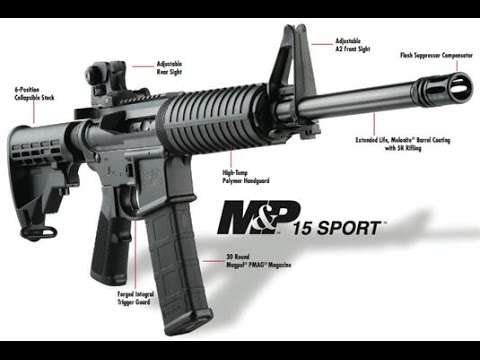Can Congress Save Lives by Raising the Rifle Purchase Age?
It is doubtful that the proposed rule would have made a difference in mass shootings.

In response to this month's mass shooting at a high school in Parkland, Florida, Sen. Dianne Feinstein (D-Calif.) wants to raise the minimum age for buying a rifle from 18 to 21. The proposal is hardly surprising coming from Feinstein, who has persistently pushed gun control throughout her political career. But last week President Donald Trump and Sen. Jeff Flake (R-Ariz.), both of whom were enthusiastically backed by the National Rifle Association, expressed support for Feinstein's idea, which the NRA opposes.
Since the Parkland massacre was perpetrated by a 19-year-old with a Smith & Wesson M&P 15 rifle, the Feinstein-Flake proposal has a superficial appeal. But the more you think about it, the less sense it makes.
Nikolas Cruz, who confessed to murdering 17 people at Marjory Stoneman Douglas High School in Parkland, legally bought his AR-15-style rifle from a gun shop in Coral Springs a year before the attack. Had the restriction favored by Feinstein, Flake, and Trump been in place at the time, that would not have been possible. But the minimum purchase age that they want to raise applies only to sales by federally licensed gun dealers, so Cruz still could have legally acquired a semi-automatic rifle through a private transfer.
Of the 23 deadliest shootings in modern U.S. history, three (Parkland, Sandy Hook, and Columbine) were perpetrated by killers younger than 21 who used rifles. The Sandy Hook shooter, who was 20, used a Bushmaster XM-15 bought by his mother, so a higher purchase age clearly would not have thwarted him. The Columbine killers, who were both younger than 18 when they started collecting weapons, obtained two shotguns and a Hi-Point 995 carbine through a straw purchase by an acquaintance who was 18. If the purchase age had been 21, they might have found an older straw buyer, or they might have obtained the long guns through an illegal private sale, which is how they acquired an Intratec TEC-DC9 pistol.
It is by no means clear that a higher purchase age for long guns would have made a difference in any of these cases. But it would make it harder for adults younger than 21 to obtain firearms for legitimate purposes. "Federal law prohibits adults under the age of 21 from purchasing a handgun from a licensed firearm dealer," notes Jennifer Baker, the NRA's public affairs director. "Legislative proposals that prevent law-abiding adults aged 18-20 years old from acquiring rifles and shotguns effectively prohibits them for purchasing any firearm, thus depriving them of their constitutional right to self-protection."
That's a bit of an overstatement, since 18-, 19-, and 20-year-olds still could legally obtain rifles and shotguns through private transactions, just as they can legally obtain handguns that way (unless their state imposes stricter requirements). But the change would eliminate the option of buying firearms from a gun store for people in this age group, in return for a doubtful and possibly nonexistent gain in public safety.
In addition to establishing a higher minimum age to buy handguns from a licensed dealer, the Gun Control Act of 1968 made 18 the minimum age to buy a handgun in a private transaction. Licensed dealers may not sell long guns to people younger than 18, but private sellers may, provided state law allows it. (Many states, including Florida, have their own minimum purchase ages for long guns.) The distinction between handguns and long guns was based largely on the observation that the former played a much bigger role in violent crime. That remains true today, even for mass shootings. Handguns are used in about two-thirds of firearm homicides (and about two-thirds of mass shootings), while rifles of all kinds account for 3 percent; shotguns are used in 2 percent.
"Under current law, licensed gun dealers cannot sell a handgun to anyone under 21, but they are allowed to sell assault rifles like the AR-15 to anyone over 18," Feinstein says. "This policy is dangerous and makes absolutely no sense….If you can't buy a handgun or a bottle of beer, you shouldn't be able to buy an AR-15." Flake echoes Feinstein, tweeting that "a kid too young buy a handgun should be too young to buy an #AR15."
Contrary to the impression left by such rhetoric, the bill Feinstein and Flake are contemplating would not ban the sale of AR-15s to adults younger than 21; it would apply only to sales by licensed dealers. At the same time, the restriction would cover all long guns, not just AR-15s or so-called assault weapons. Although such a distinction would not make much sense, it would be consistent with Feinstein's pretense that features such as folding stocks and barrel shrouds make semiautomatic rifles more deadly.
Feinstein and Flake, of course, still think 18-, 19-, and 20-year-olds should wield actual machine guns (and lay down their lives) as members of the armed forces, which seems somewhat inconsistent with the notion that they are too young to drink a beer. If the goal is consistency in the age restrictions imposed by federal law, we will need more than the symbolic tweak Feinstein and Flake are proposing.


Show Comments (157)